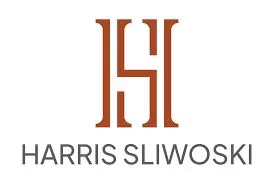USPTO Trademark Costs Will be Increasing
The United States Patent and Trademark Office (USPTO) wants to raise certain trademark fees, consistent with its fee-setting authority. If USPTO's proceeds with their current plans (which it almost certainly will), the costs associated with trademark registration in the United States will go up considerably for trademark owners. In this post we discuss some of the more impactful proposed changes.
Higher U.S. Trademark Application Fees
Currently, USPTO offers a two-tier trademark application system. If applications meet certain parameters, including the use of preapproved goods and/or services identifications, the application fee is $250 per class. On the other hand, if any of the conditions are not met, the application fee is $350 per class.
USPTO plans to eliminate the lower fee tier and set a standard fee of $350 per class. If you use custom identifications for goods and services, an additional $200 per class will be charged. The fee for standard applications using preapproved identifications will increase from $250 to $350 per class. For custom applications, fees will rise from $350 to $550 per class.
While in most cases preapproved identifications are sufficiently adequate to describe an applicant's goods and/or services, there are situations where the uniqueness of the applicant's products requires the use of customized identifications. Applicants in that bucket could soon be paying a fair amount more in U.S. trademark fees. USPTO proposes a character limit of 1,000 per class. Custom identifications exceeding this limit will incur an extra $200 fee per additional 1,000 characters. Fortunately, it's rare to need more than 1,000 characters for product or service descriptions.
USPTO Imposes a New Insufficient Information Fee
USPTO will introduce a new $100 fee per class for applications with insufficient information. It's crucial to include basic details like your name. However, be mindful of less obvious errors, such as incorrect translations or address formats, which could also trigger this fee.
For instance, if a trademark includes non-English wording, a failure to provide an English translation of that wording would incur the $100 fee. Yet wording considered to be in a foreign language by USPTO may be considered fanciful, and hence lacking a translation, by an applicant. Using the wrong suffix to describe a street could also lead to getting slapped with a charge for insufficient information. Foreign addresses present additional challenges.
The Bottom Line on New United States Trademark Costs
While USPTO trademark fees will go up in absolute terms, the potential savings to be enjoyed by using preapproved identifications will now be greater in percentage terms. This is good news for applicants for whom using preapproved identifications is a sensible choice. It is bad news, however, for those applicants with unique goods and/or services, that are simply not described adequately by any preapproved term. A careful review of the list of preapproved identifications will be more crucial than ever.
Meanwhile, to avoid getting hit with fees for insufficient information, applicants need to exercise an added degree of caution. When providing their address, for example, they would do well to check the United States Postal Service's address lookup (or relevant authoritative sources in the case of foreign addresses) to ensure they are using the same format. Likewise, in the case of fanciful trademarks, it is advisable to run some internet searches, to ensure that their company name does not mean "cow" in Hawaiian or Slovak.
To view the Original article, click here.
The content of this article is intended to provide a general guide to the subject matter. Specialist advice should be sought about your specific circumstances.


